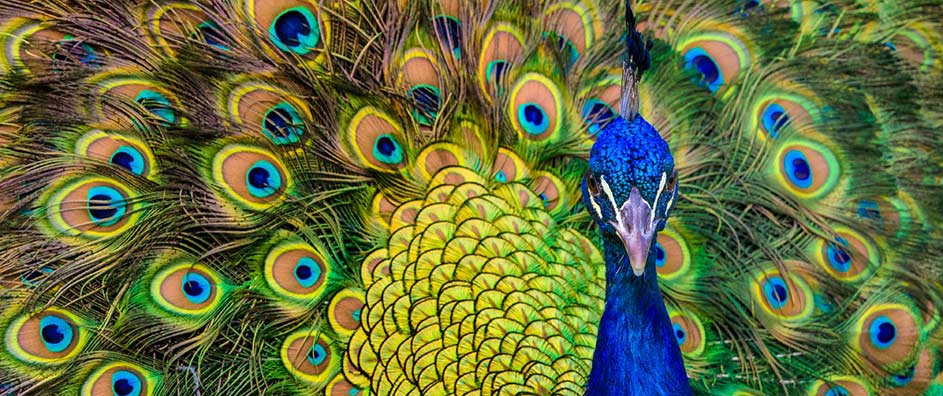The views expressed in our content reflect individual perspectives and do not represent the authoritative views of the Baha'i Faith.
We are addicted to our egotism, our likes and dislikes and prejudices, and depend upon them for our own sense of identity. – Karen Armstrong
Our own self-love draws a thick veil between us and our faults. – Anonymous
An inflated consciousness is always egocentric and conscious of nothing but its own existence. It is incapable of learning from the past, incapable of understanding contemporary events, and incapable of drawing right conclusions about the future. It is hypnotized by itself and therefore cannot be argued with. It inevitably dooms itself to calamities that must strike it dead. – Carl Jung
Those souls who consider themselves as imperfect, they are the people of the Kingdom. Those persons who prefer themselves above others are egotists and worshippers of self; they are deprived of the graces of the Lord of mankind. – Abdu’l-Baha, Star of the West, Volume 3, p. 4.
Do you know any narcissists, or their close relatives, egotists? Here’s a simplified, descriptive list to help you answer that question, compiled by psychologists K. W. Campbell and J. D. Foster, in an essay called The Narcissistic Self. They reviewed the literature on narcissism and, among their findings, summarized these major identifying traits:
- False Pride: Narcissists usually believe they are better than others.
- Inflated: Narcissists’ views tend to be contrary to reality. In testing that compares a self-report to objective measures, narcissists’ self-views tend to be greatly exaggerated.
- Special: Narcissists perceive themselves to be unique and special people.
- Selfish: Narcissists typically evince selfish behavior.
Normally, most people tend to avoid narcissists and egotists. They can be boorish, overbearing, conceited, arrogant and vain. But some narcissists quickly learn to conceal those negative qualities, to appear more normal and humble, and to use flattery to convince others to like them. It takes longer to identify narcissists and egotists who employ those stealth tactics, but you can usually recognize the syndromes by watching for excessive self-focus, problems sustaining relationships, a lack of spiritual insight or self-awareness, boundary issues and a dearth of empathy toward others.
The Baha’i teachings have a unique perspective on these kinds of negative personality traits and types. Rather than reviling them, the Baha’i writings suggest, we should see them as the natural outcome of a world that rejects strong spiritual principles, as the consequence of the selfishness and materialism of today’s modern cultures:
Today, all the peoples of the world are indulging in self-interest and exert the utmost effort and endeavour to promote their own material interests. They are worshipping themselves and not the divine reality, nor the world of mankind. They seek diligently their own benefit and not the common weal. This is because they are captives of the world of nature and unaware of the divine teachings, of the bounty of the Kingdom and of the Sun of Truth. – Abdu’l-Baha, Selections from the Writings of Abdu’l-Baha, pp. 103-104.
…the heavenly water and spirit, which are knowledge and life, cleanse and purify the heart of man. In other words, the heart that partakes of the outpouring grace of the Holy Spirit and becomes sanctified is made goodly and pure. The purpose is that the reality of man be purified and sanctified from the defilements of the world of nature, which are vile attributes such as anger, lust, worldliness, pride, dishonesty, hypocrisy, deceit, self-love, and so on. – Abdu’l-Baha, Some Answered Questions, newly revised edition, p. 103.
“Captives of nature,” Abdu’l-Baha wrote, “unaware of the divine teachings…” and “worshipping themselves”—this kind of self-admiration accurately describes the narcissist. But instead of condemning or demonizing people with narcissistic or egotistical tendencies, the Baha’i teachings view them as spiritually uneducated and under-developed, as those who haven’t yet transcended the selfishness inherent to the animal world:
The mass of the people are occupied with self and worldly desire, are immersed in the ocean of the nether world and are captives of the world of nature, save those souls who have been freed from the chains and fetters of the material world and, like unto swift-flying birds, are soaring in this unbounded realm. They are awake and vigilant, they shun the obscurity of the world of nature, their highest wish centereth on the eradication from among men of the struggle for existence, the shining forth of the spirituality and the love of the realm on high, the exercise of utmost kindness among peoples, the realization of an intimate and close connection between religions and the practice of the ideal of self-sacrifice. Then will the world of humanity be transformed into the Kingdom of God. – Abdu’l-Baha, Selections from the Writings of Abdu’l-Baha, pp. 281-282.
From a Baha’i perspective, then, narcissism isn’t only a mental problem—we each have some narcissism inside our souls, which means that it represents a deep spiritual challenge to all of us:
So long as man is a captive of nature, submerged in the sea of materialism, pursuing the dictates of self and desire, he is vanquished and defeated. This passionate ego takes the reins from his hands, and changes him into an animal. He will fall so low that he will be unable to judge good from evil. He will not be able to distinguish light from darkness, neither will he be able to behold the angelic attributes.
Therefore this acquired individuality which is the result of evil customs becomes the dominant note of his life.
I hope that all of you may be freed from these dangers, delivered from the world of nature, enter into the realm of light, and become divine, radiant, merciful, God-like and confirmed. – Abdu’l-Baha, Star of the West, Volume 3, p. 39.
















Comments
Sign in or create an account
Continue with Googleor